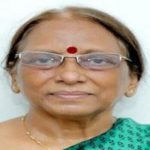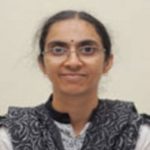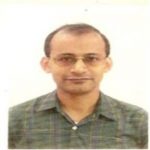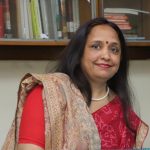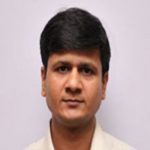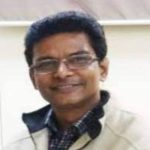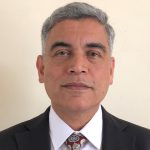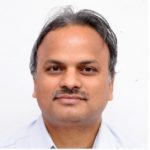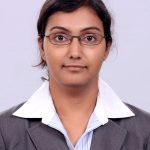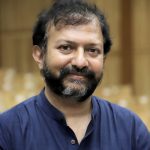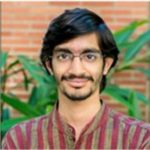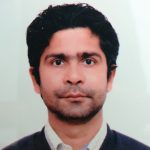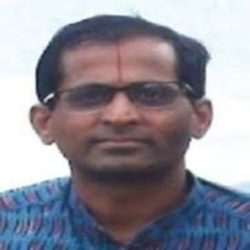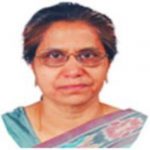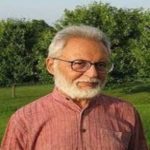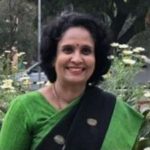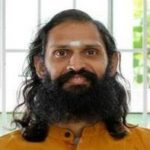FACULTY
Head
Professor Purnima Singh
Purnima Singh completed her under graduate and post graduate study at the University of Allahabad, India. She completed her D.Phil in Psychology in 1985 from the University of Allahabad. She then joined as a Faculty in the University of Allahabad in 1985, where she taught till 2005.She later moved to IIT Delhi in 2005 where she is teaching at present. In 1986 she was awarded the Young Scientist Award by the Indian Science Congress Association for her research work. She went to University of Bristol, U.K. on a Commonwealth Academic Staff Fellowship during 1991-1992. She has been associated with the Journal Psychology and Developing Societies, (published by Sage) for nearly 18 years. At present she is the Associate Editor of the journal. She is associated with a number of professional associations. She is the present Treasurer of the National Academy of Psychology (NAOP), India.She has published a number of articles in national and international journals as well as book chapters. She has recently contributed a chapter reviewing social psychology research in India in the last decade, a project sponsored by the ICSSR, India. Besides, she is associated with a number of national and international collaborative research projects related to justice-social, organizational and retributive, intergroup relations, identity and collective experience, counter productive work behaviors and violence.
Joint faculty
Professor Sangeeta Kohli
Selected Publications
- Effect of nozzle shape on jet impingement heat transfer from a circular cylinder, D Singh, B Premachandran, S Kohli, 2015
- Effect of Mindfulness Meditation on Perceived Stress Scores and Autonomic Function Tests of Pregnant Indian Women, S Muthukrishnan, R Jain, S Kohli , 2016
Professor M. R. Ravi
Details of current research areas:
Combustion characteristics of gaseous fuel mixtures, measurement of burning velocity of such mixtures, to investigate the effect of composition and equivalence ratio on burning velocity and stability regimes of flame. Computational simulation of open flames of such mixtures to study the effects of stretch field and preferential diffusion effects on the stability regimes.
Development and investigation of Biomass Gasification and Combustion systems, with specific interest in small scale (<=20 kW) systems for thermal and electrical applications, and powdery biomass based systems.
Energy Audit of rural industrial systems such as pottery kilns, soap stoves, smithy kilns etc. with an objective of fuel savings in such systems by applying basic principles of heat transfer and combustion. Development of energy-efficient alternatives for such systems.
Associated Faculty
Professor Rahul Garg
Professor Rahul Garg is interested in studies of Yogic sciences based on first-person as well as third-person perspectives. From the first-person perspectives (NRCVEE focus area Inner Development), he is interested in studying the writings of different renowned first-person explorers of Yogic sciences and framing them in a common framework using language and terms that are portable across different frameworks and traditions.
From a third-person perspective (NRCVEE focus area Holistic Health and Wellness), Professor Garg is interested in understanding the impact of different mind-body practices on various objectively measurable parameters related to health and wellness.
Professor Anushree Malik
Professor Anushree Malik received her PhD from IIT Delhi and subsequently worked as JSPS post-doctoral fellow at Utsumoniya University, Japan and as an Assistant Professor at School of Environmental Sciences, Jawaharlal Nehru University, Delhi before joining IIT Delhi in 2004. She works in the broad area of biological waste treatment, algal biorefineries and resource recovery. Her group is engaged in several carbon negative-integrated algal biorefinery projects targeting at least 6 sustainable development goals. In association with NRCVEE, she is willing to explore what drives successful community initiatives on ground and what sustains them? She was also involved in mentoring a PhD thesis on effect of heartfulness spiritual practice based programs and processes on mental and physical health indicators.
Professor Kamlesh Singh
Professor Kamlesh Singh’s main areas of research are as follows – Examining the effectiveness of Positive Psychology intervention strategies, programs being delivered by R/S organizations and other existing R/S practices and socio-cultural factors in Indian setting. Incorporating yoga, meditation, psycho- spiritual practices and socio-cultural factors in mainstream Positive Psychology and how these practices promote psycho- spiritual benefits.
Professor Jyoti Kumar
Professor Jyoti Kumar is a professor of User Experience (UX) design at Department of Design, IITD. He approaches all phenomena of study from experiential perspective. He believes everything that exists has no other purpose than to provide an experience. Traditional Indian wisdom has called the creation as ‘leela’, that is, an act of play. Natya satra calls the purpose of play as ‘rasotpatti’, that is creation of an experience. However, a great deal suffering is what we observe around. This can be alleviated by authentic knowledge and systematic practice. Scientific research is one way to derive authentic knowledge in modern times. Prof. Jyoti Kumar runs a User Exprinec Lab at IITD. He is interested in research on human positive experiences using yogic neuroscience. The antarang and the bahirang yoga practices as per Patanjali, the bhakti yoga practices as per the bhakti acharyas or the detailed 18 yoga of Bhagwad geeta, all of these form the yogic neuroscience of positive experiences. Different methods have been proposed in ancient Indian texts which promise to provide a more positive experience of life. They provide a framework of profound yogic neuroscience of happiness which seems to be more elaborate in comparison to modern neuroscience though not contradictory. He uses qualitative research using deep unstructured interviews as a method to investigate personal experiences and combines it with the Electroencephalography (EEG), Galvanic Skin Responses (GSR) and Pupillometry to understand neurophysiology of personal experiences. He argues that values which are at the core of a cultural practice are formed with experiences of individuals and societies over a period of time. Therefore, understanding the process of human experiences can help find ways to provide alternative paths to develop a culture of universal peace, harmony and happiness, much needed in modern times.
Professor James Gomes
James received his Bachelors’ degree in Chemical Engineering from Jadavpur University and M.S. and PhD from Tulane University, New Orleans, USA. He worked for Process Services Inc., Baton Rouge and L&T, Powai, Mumbai, before joining IIT Delhi. His current research interest is in the area of Systems and Network Biology. His group focusses on the application of mathematical and computational methods to study disease networks, understand disease progression and determine new drug targets, followed by directed experiments. Particular areas include neurodegenerative diseases and virus-host interaction networks. James has interest in emergent properties arising in complex systems and a growing interest in the mind and consciousness problem. During leisure he spends time on eastern and western philosophies, and painting.
Bhupinder Godara joined as Professor of Practice in the Department of Mechanical Engineering in Feb 2020 after almost 30 years of work experience in Industry. He graduated in Mechanical Engineering from IIT Delhi in 1987 followed by M. Tech in Thermal Engineering in 1989. He has work experience in product development and business development in refrigeration and air conditioning in several multi-national and Indian corporates that include Proctor & Gamble, ICI, Fedders Lloyd Corporation, Carrier, Mirc Electronics (ONIDA) and Danfoss. His interest in human values has continued since his student days at IIT Delhi (1983-89). He feels fortunate and privileged to have been guided by Dr. S.D. Sharma (founder president of Yoga Club) and the founders’ of NRCVEE, Professor Dhar and Professor Gaur during his student days. He recalls fondly being involved with organising the first Vipassana Meditation Camp in IITD campus as well as being face to face with Sri Sri Ravishankar in faculty guest house. He was responsible for starting Yoga Mess (a spice and oil free food alternative) for students. He was awarded the community service award at IIT Delhi. He is inspired by NRCVEE initiatives to blend the essence of timeless ancient wisdom preserved over centuries with engineering education. He enjoys coaching students to overcome barriers to self-expression and peace of mind. He welcomes student and faculty to connect with him to explore the unknown fearlessly and authentically without any dogma, superstition or pre-conceived beliefs becoming an obstacle to the learning opportunity. The pursuit for lasting peace, fulfilment and happiness will perhaps conclude in the oneness of what is the at the core of teaching of all realized saints. He looks forward to creating a NRCVEE program to enable the above
Professor Amit Kumar Jain
Professor Amit Kumar Jain is associated with NRCVEE from 2012, since he joined IIT Delhi. Currently, he is serving as coordinator of Vivekananda Study Circle (VSC) from 2017. Under the umbrella of VSC, he has organized and coordinated many talks by dignitaries from Sharda Mission, Ramakrishna Mission, Brahma Kumaris, Isha Foundation, Chinmaya Mission, Prashant Advaith Foundation, J.K.Yog Foundation among others. He was happy to interact with UG Students under NEN100/101 course every time it was floated by NRCVEE
Professor Tanusree Chakraborty
Professor Tanusree Chakraborty obtained her PhD from Purdue University. She is working as Professor in the Department of Civil Engineering, Indian Institute of Technology Delhi (IIT) India. Her main areas of interest include blast resistant design of infrastructure, soil plasticity and constitutive modeling, renewable energy. She is the recipient of the Alexander von Humboldt fellowship. Besides these, she has been an avid mediator since her PhD time. She teaches meditation, breathing exercises, and is a youth mentor. She has been actively teaching meditation in India and Europe.
Professor Samrat Mukhopadhyay works mainly in the area of Sustainable chemical processing in the Textile Industry – his research focuses on developing processes and products which can save resources – energy, power and water. He has also been working on technical interventions in the Indian handloom sector. He has been associated with the handloom clusters of Andhra Pradesh, West Bengal, Bihar and Gujarat and has been working on their challenges for the last decade. He has been able to create easier working prototypes for a few tedious processes and also tinker with the existing processes to make them more efficient. His most rewarding interactions have been with the B.Tech students in the value education classes – where he used to take case studies in engineering to stress the importance of ethical values. Some of the interactions used extempore speeches and debates on issues of ethical concern to achieve a deeper understanding of ethical dilemmas.
Professor N M Anoop Krishnan
Professor N M Anoop Krishnan is a trained vocalist with a B-grade in vocal music from AIR, Calicut. He has completed his M.A. in Music from Kerala University. He is continuing his training in carnatic music with his guru Dr. Shreekantham Nagendra Shastry and hindustani music under Vid. Aditi Upadhya. A performing vocalist with keen interest in the theory and evolution of Indian classical music, Anoop conducts lecture demonstrations and workshops on a range of topics including Ragam-tanam-pallavi, evolution of indian music, aesthetics of indian music, allied ragas, appreciating music concerts etc.
Professor Nomesh Bolia is a product of IIT Bombay and UNC Chapel Hill, USA and currently a professor in the department of Mechanical Engineering, IIT Delhi. His areas of research interest include Operations Research and its applications to Public Systems. He takes a keen interest in holistic and sustainable development, particularly as manifested by the civilizational wisdom of Bharata. To be more specific, his areas of interest include: Development and growth that drives and is driven by harmony among humans and the rest of the creation, leadership that drives and is driven by such integral development, and systems that facilitate such leadership and development.
Professor Parag Singla
Professor Parag Singla is interested in various aspects of holistic and sustainable development, such as:
- Notions of development which go beyond purely material well-being, and consider other aspects of human/societal well-being such as intellectual, emotional and overall happiness.
- Notions of development which encompass sustained co-existence among human-beings as well as with nature.
Professor Vijayaraghavan M Chariar
Professor Chariar’s current work integrates the principles of sustainable design with the traditional knowledge available with the indigenous communities.
He focuses on how these principles manifest in the housing and sanitation space. He has worked with the Ministry of Rural Development to launch the Rural Housing Knowledge Network. In the field of Ecological Sanitation, he is one of the co-inventors of Zerodor, a waterless urinal solution being used by more than 200 organizations in India and Africa.
Other associated Faculty
The other faculty members associated with NRCVEE are Professor Amit Gupta, Professor Devendra Kumar Dubey, Professor Bhupinder Godara, Professor Harish Chaudhary, Professor Kanika Tandon Bhal, Professor Mahim Sagar, Professor Manjeet Jasal, Professor Bhanu Nandan, Professor Niladri Chatterjee, Professor PR Bijwe, and Professor P.V.M. Rao
Honorary Professor
Professor Santosh Satya
Professor Santosh Stya is interested in various aspects of holistic and sustainable development, such as:
- Notions of development which go beyond purely material well-being, and consider other aspects of human/societal well-being such as intellectual, emotional and overall happiness.
- Notions of development which encompass sustained co-existence among human-beings as well as with nature.
Adjunct Professors
Dr Ramesh Lal Bijlani
He is an Indian writer, inspirational speaker, medical scientist and retired Professor of Physiology who has specialized in physiology, nutrition, and yoga. He is the author of more than 200 scientific papers, more than 50 popular articles, and 14 books, including a 1000-page textbook for medical students and teachers, Understanding Medical Physiology (2004), and a 32-page picture book for 5- to 8-year-olds, Our Body: A Wonderful Machine (1986), which was the best selling title published by the National Book Trust for the decade 1995–2005
Dr Ramaswami Balasubramaniam
Dr R. Balasubramaniam teaches and lectures at various universities across the globe, on issues related to Leadership, Governance of NGOs, Poverty and Development, and Global Health. He has been bestowed with the honor of being the Frank H T Rhodes Professor at Cornell University, USA and is also the Adjunct Professor of International Programs at the University of Iowa, USA. He regularly runs leadership workshops for the Govt, NGOs and corporates, both in India and abroad, with his niche areas being ‘enlightened leadership,’ ‘adaptive leadership’ and ‘servant-based leadership’ as propounded by Swami Vivekananda. Over the years, Dr. R. Balasubramaniam has been a member of several Central and State Government committees. He also served as an adviser and consultant to the World Bank and WHO. He is also the Professor and Head of the Vivekananda Chair, University of Mysore.
Adjunct Professors of Practice
Padma Bhushan Sri M
A Padma Bhushan Awardee in 2019, Sri M is a spiritual guide, social reformer and educationist. From the young age itself he had the fortune of meeting numerous well-known saints, like Yogi Gopala Swami, Kaladi Mastan, Swami Abhedananda, Chempazhanti Swami, Swami Tapasyananda and Mai Ma. At nineteen, he embarked on his journey to the Himalayas. In Badrinath, he met his master, Maheshwarnath Babaji, who initiated him into the Nath tradition. He lived and travelled extensively through the Himalayas with his Master. His Master, then, encouraged him to return to the plains. He met saints from all religions including NeemKaroli Baba, LaxmanJoo and J.Krishnamurti. In 1998, he started his teachings, eventually leading to formation of the Satsang Foundation. Though Sri M’s Parampara is kriya yoga, he believes that this may not suit all aspirants. Conversant with teachings of most major religions, Sri M argues to ‘go to the core, theories are of no use’. In 2019, Sri M was conferred with the Padma Bhushan, one of India’s highest civilian Awards for the distinguished service of high order in the field of Spirituality.
Dr Anuradha Balaram
After 30 years as a civil servant, Anuradha Balaram is now focusing on building self-esteem and responsible choice making among children, youth and women. Her mission lies in enabling people to respond better to life’s challenges by increasing their self-awareness and deepening their world view. Areas such as Meaningful Education, Transformational Leadership, Value based decision making and harmonious work / personal relationships interest her. She is deeply influenced by Swami Vivekananda’s message to youth and would like to energize people with these powerful and life enriching ideas of practical spirituality.
Shri Varun Vidyarthi
Varun Vidyarthi has a formal background in Electrical Engineering from I.I.T. Kharagpur and Business Management from I.I.M. Calcutta. He started his career as an engineer with the corporate sector at TATA Motors, Pune. The Indian spiritual tradition of finding a purpose in life, led him to abandon that career track to live and work among poor villagers in Uttar Pradesh, North India. In the early eighties, his analysis of linkages between social structure and resource management issues in rural India led him to work as Visiting Fellow at the Institute of Development Studies, Sussex, U.K., Research Fellow at the East West Center, Honolulu, U.S.A. and later as Consultant to the Food and Agriculture Organisation of the U.N. The call of the grassroots, however led him back from academics to being a practitioner of participatory methods in rural Uttar Pradesh. He is currently director of Manavodaya. He is also member of the Working group on Panchayati Raj, Gender and Micro finance. Planning Commission, Government of India as well as member UP Electricity Regulatory Commission.
Shri Adinarayanan Venkatchalam
Shri Adinarayanan Ji is the founder of Anaadi Foundation, a public charitable organization dedicated to self‐unfoldment of individuals. He was formerly Assistant Professor, Department of Information Technology and Coordinator of the Department of Cultural Education, Amrita University Coimbatore. He has an MS in Computer Engineering from North Carolina State University and was with the Software Industry before moving into academics. At Amrita University and elsewhere he has reached out to more than ten thousand students through his Computer Science, Mahabharata, Yoga and Cultural Education based courses. He has spent more than 100 days in Mouna Tapasya for the wellbeing of all and as a means of first person research into consciousness. Anaadi Foundation’s Himalayan Yatra and Vikasa Leadership Retreat are quite popular among the youth.

